ANS Chicago Local Section welcomes Dr. Mark Peters
What's Next For Used Nuclear Fuel and Nuclear Waste Management Policy?
On the evening of January 16, the Chicago local section of the American Nuclear Society welcomed distinguished guest speaker Mark Peters, Ph.D., deputy director for programs at Argonne National Laboratory. A dinner meeting was held at the ANS headquarters building. Peters addressed the section on the future of US policy concerning used nuclear fuel and nuclear waste management, a topic area for which he is a nationally recognized expert (short bio).
The topic could not have been more timely, as the US Department of Energy on Friday, January 9, released a response to the Blue Ribbon Commission on America's Nuclear Future recommendations on nuclear spent fuel and nuclear waste policy, broadly endorsing the commission's findings and in effect outlining a new strategy for US nuclear waste disposal.
Over 40 were in attendance to hear Peters provide a background on US spent fuel and waste storage policy history, and a detailed update on current status-including Yucca Mountain and other ongoing nuclear waste legal challenges. Often Peters paused the presentation to enable spirited Q&A discussions on many aspects of the topic. (As an aside, many in attendance advocated a "closed nuclear fuel cycle"-while this is not current policy in the United States, Peters noted that continued R&D is important to develop the viability of this option for the future.)
"It was a pleasure to address the ANS Chicago Local section on this vitally important topic," Peters said after the event. "Many members in the section are involved in advancing research and development in the nuclear fuel cycle, and I was pleased to discuss the history of and ongoing discussions on US policy concerning spent fuel and nuclear waste management."
Peters' presentation slides linked here.
Periodic dinner meetings such as this one are hosted by many ANS local sections on a regular basis. See map of ANS local sections for contact information in your geographic area.
Blue Ribbon Commission on America's Nuclear Future website here.
Peters' Testimony to U.S. House of Representatives on behalf of ANS concerning recycling used nuclear fuel.
___________________


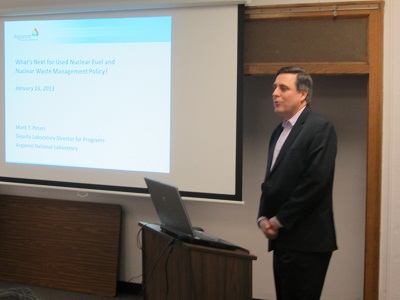
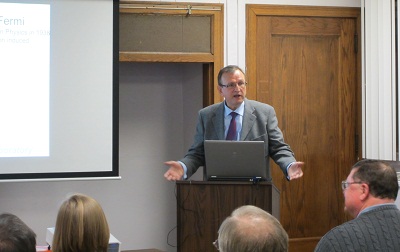
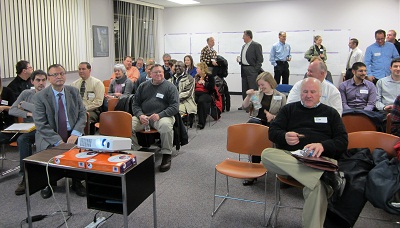
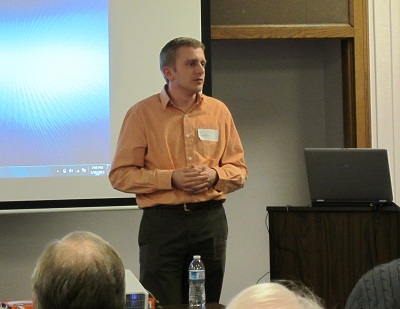
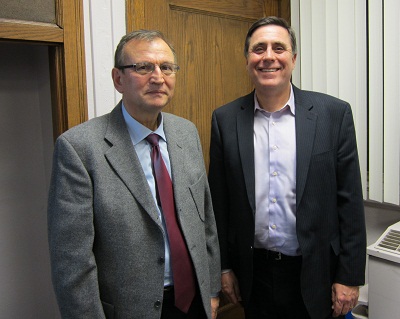







.jpg)

